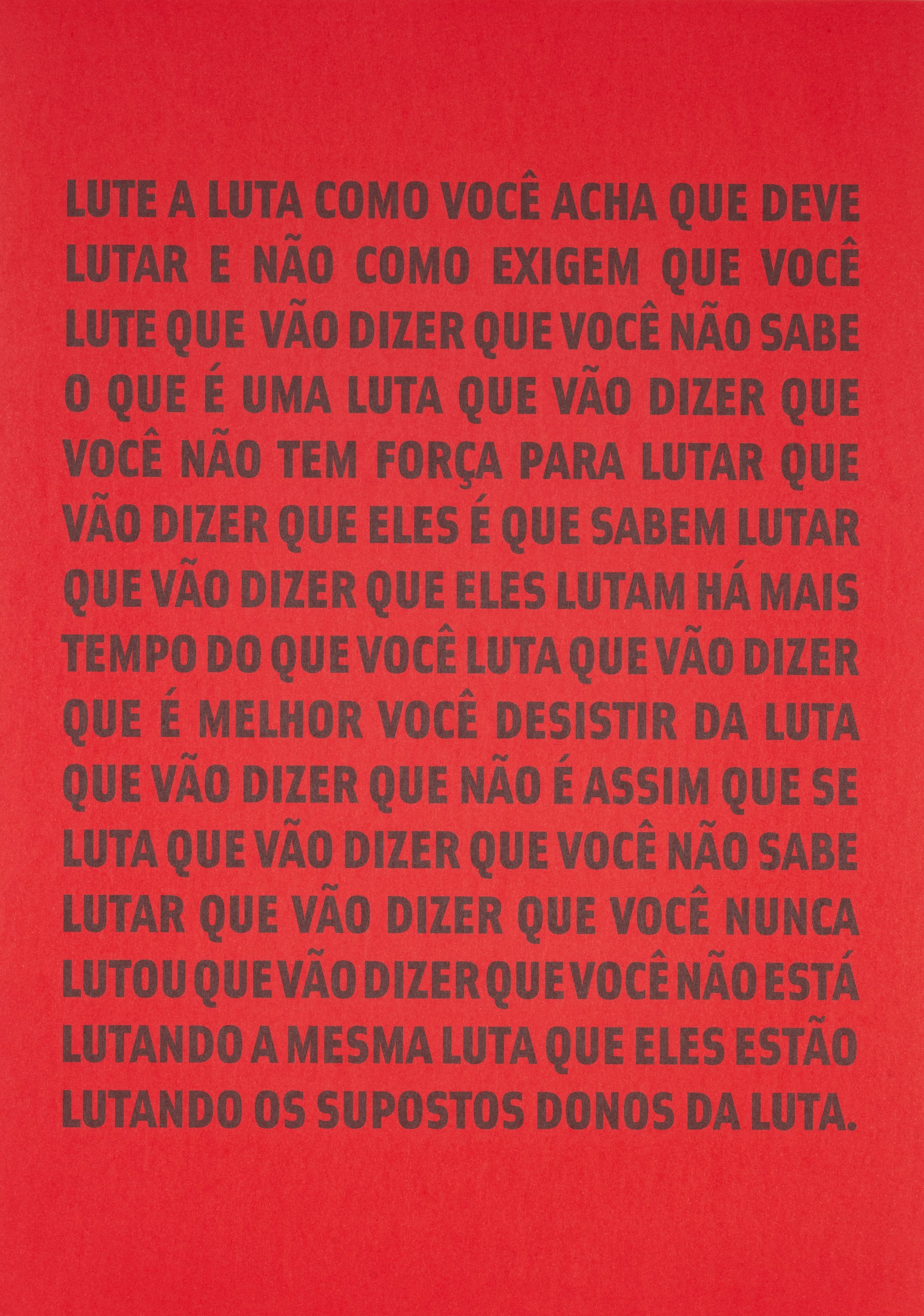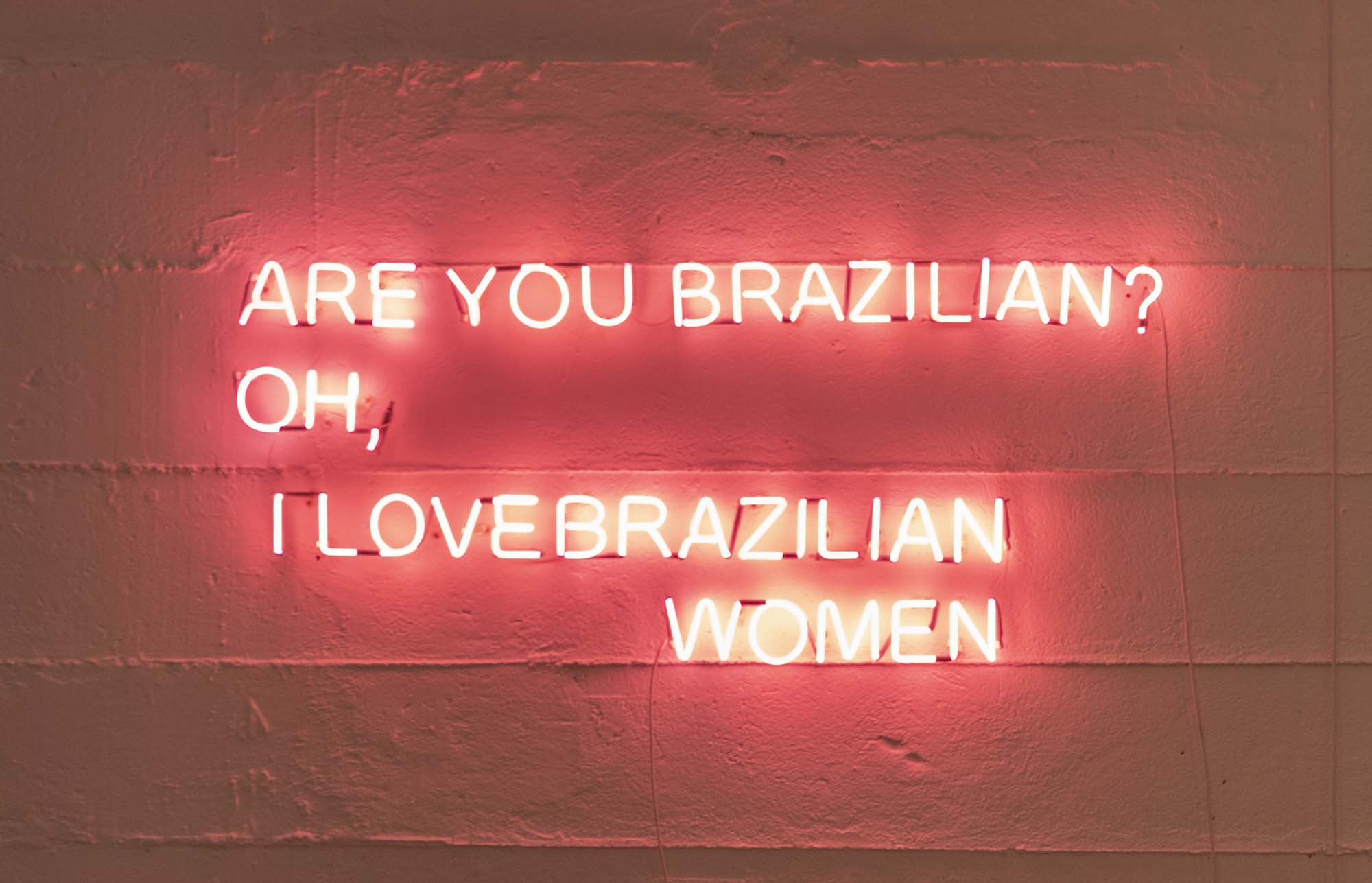Santarosa Barreto
The Fight, 2018-19
Author:
Santarosa BarretoBio:
São Paulo, Brasil, 1986Title:
The FightDate:
2018-19Medium:
Impressão offset sobre papelDimensions:
42 x 30 cmCredit line:
Doação da artista, no contexto da exposição Histórias das mulheres, histórias feministas, 2019Object type:
CartazInventory number:
MASP.10850Photography credits:
Eduardo Ortega
Santarosa Barreto engages references from literature, film, and art history to highlight the still dichotomous and fragile places attributed to women and the feminine in these narratives. In the neon pink sign entitled Brazil, one reads an English phrase often addressed to Brazilian women as a kind of flirtation by foreign men: “Are you Brazilian? Oh I Love Brazilian Women.” The piece alludes to the eroticization of these bodies in the international masculine imaginary—one that is rooted in colonialism, as the body of the other is situated as a territory to be used, exploited, conquered, and dominated. In the piece, the artist demonstrates the intersection between gender and stereotypes as they relate to Brazil’s national history, which persists to this day, as evidenced in the fact that Brazil remains a destination for sex tourism.
The poster A luta [The Fight] (2018–2019) presents a sequence of phrases, a stream of consciousness addressing the various forms of silencing women experience in certain forms of activism. The text begins with a statement — Fight the fight as you think you should fight — and slowly unfolds into different phrases that, exhaustively, expose arguments utilized to disqualify the feminist struggles within these activisms. The absence of commas in the text causes the reading to evoke a state of permanent combat—the poster was initially conceived as a print on red synthetic leather, evoking both the notion of a punching bag as well as a flag. Barreto here addresses the attempts to disqualify feminist struggles by certain self-declared emancipatory political movements that historically have not accepted women’s demands, considering them “minor” issues and repeating the conservative patterns of oppression they themselves criticize.
— Isabella Rjeille, assistant curator, MASP, and Talita Trizoli, postdoctoral researcher, IEB-USP, 2019




